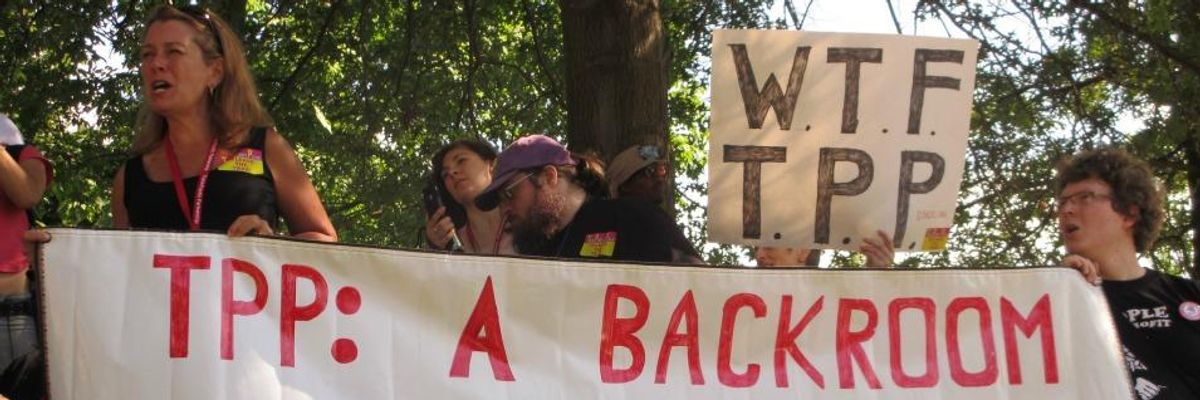Following swiftly on the heels of endorsements by two other leading business groups, the U.S. Chamber of Commerce on Wednesday officially announced its support for the 12-nation Trans-Pacific Partnership (TPP).
Earlier this week, the National Association of Manufacturers (NAM) and the Business Roundtable (BRT) both threw their weight behind the pact, which was not surprising due to the numerous criticisms that the so-called free trade deal would be huge boon for corporations, at the expense of people and planet.
"No trade agreement is perfect, and the TPP is no exception," said Chamber resident and CEO Thomas Donohue in a press statement. "With that in mind, we're rolling up our sleeves to work with the administration, Congress and our TPP partners to ensure the agreement is implemented in a way that maximizes its commercial benefits, including market access, rules, and intellectual property protections."
Labor groups were quick to react to the announcement. Communication Workers of America (CWA) wrote on Twitter: "It took the U.S. Chamber longer than we thought to decide to support the 1% instead of American working families!"
And contrary to Donohue's claim that the TPP "will set new standards...for future trade agreements," Stan Sorscher, a labor representative at the Society for Professional Engineering Employees in Aerospace (SPEEA), wrote in a blog post on Wednesday that alternately the deal "locks in toxic power relationships that will block positive change for a generation or two."
"TPP defines bad rules for globalization," Sorscher added. "TPP was negotiated in secret, keeping civil society at arms length. TPP clearly reflects interests of global investors, defining a version of globalization 'of, by, and for the 1%.'"

